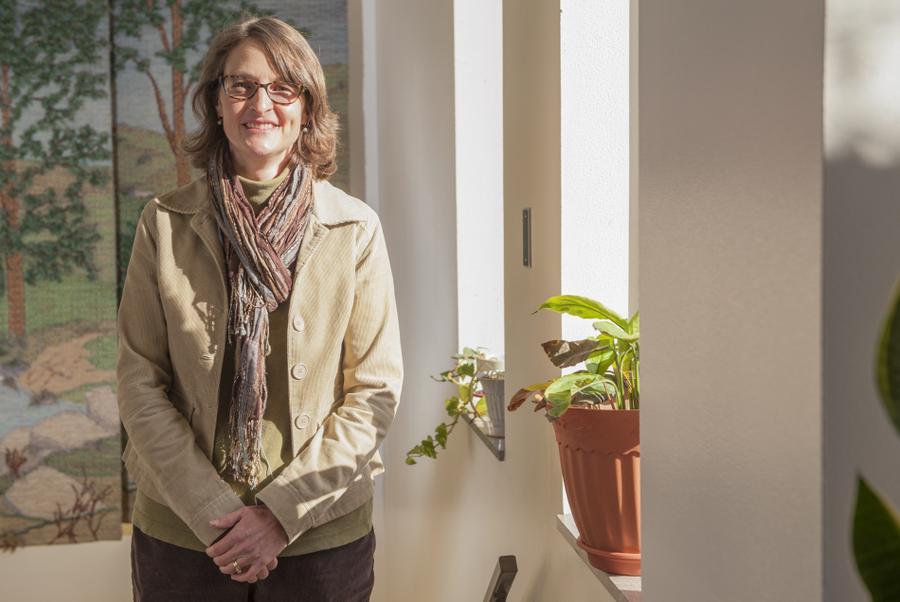
An MU researcher’s recent study found that many animals can have a positive effect on children with autism, especially on their assertion skills.
Gretchen Carlisle, a postdoctoral fellow and researcher at the College of Veterinary Medicine, conducted the study to see if alternative therapeutic animals for children with autism were as effective. Dogs have been a popular option, but they tend to be costly.
She found that despite the common belief that dogs are the most effective animals to assist with developing social skills in children with autism, other types of pets have similar effects.
“Really, (my goal is) to try to clarify, scientifically, areas within this human-animal interaction for children with autism that may be able to help families improve their lives,” Carlisle said.
Her findings [were published](http://link.springer.com/article/10.1007/s10803-014-2267-7) in the _Journal of Autism and Developmental Disorders_ in October.
Carlisle said her background in pediatric nursing eventually led her to veterinary research.
“I became interested in human-animal interaction through my work as a school nurse with children with autism and their families, and the potential impact that animals could have,” she said.
Now a postdoctoral fellow at the Research Center for Human-Animal Interaction (ReCHAI), Carlisle wanted to know if having a pet in the home would help a child with autism become more social over time. She originally set out to study only the effects of dogs, but found that a variety of other pets impact children with autism as well.
Her research, conducted as a cross-sectional study by telephone survey in which Carlisle spoke with parents of children with autism as well as the children themselves, revealed evidence that was different from what Carlisle initially expected.
She looked at different subsets of social skills and found that statistically, children who lived with a pet had stronger assertion skills.
Dogs have been the focus of similar studies in the past, as they are often assumed to be the family pet that is best to aid in the development of social skills in children with autism, Carlisle said. She said her study is one of two published that includes pets as a whole.
The possibility of having any type of animal, including smaller, less expensive pets, could make all the difference for families, as access to professionally-trained therapeutic animals is often costly, Carlisle said.
“In those types of settings, there are limited resources available to children and families, and sometimes cost is a big factor in that,” she said. “What I wanted to know is, what about a pet in the home? Could the children be getting some of the same benefits that they were seeing with these trained animals with a pet in the home?”
Now that she is able to answer “yes” to these questions, Carlisle wants to expand upon her findings to discover the best way to help children with autism and their families.
“It’s my goal to move forward in looking at some of these other alternative pets and (in) what types of situations and settings they might be the most beneficial,” she said.
Rebecca Johnson, who founded ReCHAI in 2005 and is president of the International Association of Human-Animal Interaction Organizations, advised and mentored Carlisle throughout the study.
“Her research opened a new area for the ReCHAI,” Johnson said. “(It) is important given the increasing incidence of autism and the growing research evidence showing how companion animals can improve the lives of people.”
Jessica Bibbo, a doctoral student in Human Development and Family Studies and a research assistant at ReCHAI, said that Carlisle’s experience in both nursing and veterinary science greatly enhances her ability to make a difference.
“The work she does highlights that each department influences the other,” Bibbo said. “The work done in the vet school does affect people, and people’s well-being affects their companion animals.”
Though Bibbo was not involved in the gathering of data in the study, she was able to work with the results of the study.
“Gretchen’s work is uncovering an important aspect of family life (that) has previously been overlooked,” Bibbo said. “She is also doing a great job of making it clear that a pet is not a panacea and that many factors need to be well-thought out in order to provide benefits that the human-animal bond is capable of.”
Bibbo said that Carlisle’s passion for the people she studies is visible in her research.
“Working with Dr. Carlisle has been tremendous,” Bibbo said. “I cannot overstate how fun it is to work with someone who is focused and passionate while maintaining a sense of humor and driven by a true love for living things.”
Carlisle said her biggest accomplishment has been opening up a wider range of options for families of children with autism that have the potential to make their lives better.
“I just want the word to be out for families to be able to think about your child and your family, and if you want a pet and you think it works for your family, consider what you think is the best match for you,” Carlisle said. “That’s what I’m happiest about, just that that message is getting out there to families. Of all the groups of children with disabilities, these families are the most stressed, so they don’t need one more thing.”